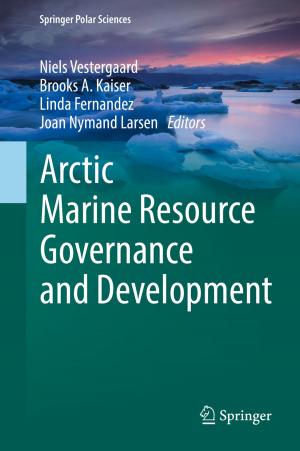Sustainable Intensification to Advance Food Security and Enhance Climate Resilience in Africa
Nonfiction, Science & Nature, Nature, Environment, Environmental Conservation & Protection, Science, Earth Sciences| Author: | ISBN: | 9783319093604 | |
| Publisher: | Springer International Publishing | Publication: | October 10, 2014 |
| Imprint: | Springer | Language: | English |
| Author: | |
| ISBN: | 9783319093604 |
| Publisher: | Springer International Publishing |
| Publication: | October 10, 2014 |
| Imprint: | Springer |
| Language: | English |
This 32-chapter volume represents the core of several oral and poster presentations made at the conference. In addition to Introduction and Conclusion sections, the book is thematically divided into 7 sections, namely, 1) Land Use and Farming Systems, 2) Effects of Climate Change on Crop Yield, 3) Soil Nutrient and Water Management for Carbon Sequestration, 4) Rehabilitation of Degraded Lands through Forestry and Agroforestry, 5) Management of Animal Production for Greenhouse Gas Emissions, 6) Smallholder Adaptation to Climate Change, and 7) Economic, Social and Policy Issues. It addresses these themes in the context of sustainable intensification (SI). It implies increasing agronomic production from the existing land while improving/restoring its quality and decreasing the C or environmental footprint. Simply put, SI means producing more from less.
This 32-chapter volume represents the core of several oral and poster presentations made at the conference. In addition to Introduction and Conclusion sections, the book is thematically divided into 7 sections, namely, 1) Land Use and Farming Systems, 2) Effects of Climate Change on Crop Yield, 3) Soil Nutrient and Water Management for Carbon Sequestration, 4) Rehabilitation of Degraded Lands through Forestry and Agroforestry, 5) Management of Animal Production for Greenhouse Gas Emissions, 6) Smallholder Adaptation to Climate Change, and 7) Economic, Social and Policy Issues. It addresses these themes in the context of sustainable intensification (SI). It implies increasing agronomic production from the existing land while improving/restoring its quality and decreasing the C or environmental footprint. Simply put, SI means producing more from less.















